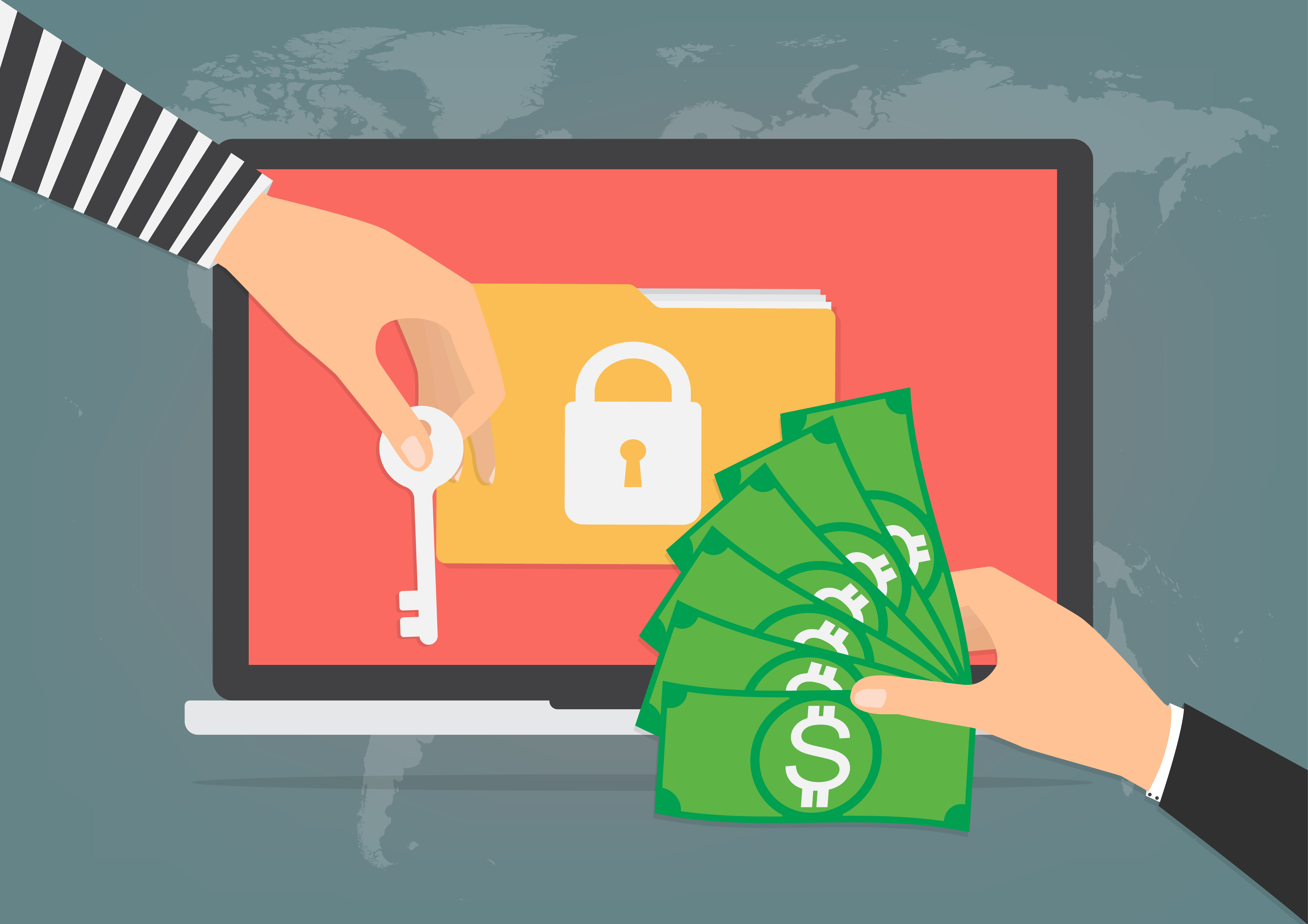40% of cybersecurity professionals think paying ransomware demands should be illegal
Practice of giving in to ransomware demands rarely yields results, industry claims


Sign up today and you will receive a free copy of our Future Focus 2025 report - the leading guidance on AI, cybersecurity and other IT challenges as per 700+ senior executives
You are now subscribed
Your newsletter sign-up was successful
A survey of top IT security professionals has revealed that 40% believe paying out as part of a ransomware demand should be made illegal.
The majority of respondents believed that businesses should never pay an attacker to decrypt their data, although more than 40% said they would either consider it or absolutely pay it as it's the easiest method of remediation.
The study from AT&T Cybersecurity shed light on the perceptions businesses have of ransomware and their current level of preparedness against the threat that's still one of the most prolific out there.
While most businesses (69%) were confident that they had the cyber security resilience and necessary backups in place to prevent a ransomware attack from crippling operations, 30% of leaders said they weren't sure.
"It's clear from this research that organisations are still struggling when it comes to ransomware. Many do not know the best practices when it comes to ransomware, or worse, do not feel confident to handle attacks efficiently," said Rick Langston, lead product manager from AT&T Cybersecurity.
"Companies not only have to mitigate ransomware by having a solid security programme that uses protection tools to close down all possible attack vectors, but also have back-ups that are separate from the network in case the worst happens," he added.
Regardless of how prolific ransomware has become in the past few years - UK businesses saw a 195% increase in ransomware attacks this year - it's still eclipsed by other threats in terms of what's worrying security professionals.
Sign up today and you will receive a free copy of our Future Focus 2025 report - the leading guidance on AI, cybersecurity and other IT challenges as per 700+ senior executives
Of the five most troubling threats faced by businesses, ransomware was at the bottom of the list. Nation-state attackers, insider threats, phishing and DDoS attacks were all more troubling to security professionals than the attack vector plaguing UK businesses.
It's not just the UK that's seen a proliferation of ransomware in the past year; myriad US towns and cities have succumbed to ransomware attacks in recent months - most of which seem to be small towns and government departments.
Most recently, 22 Texan towns and their government departments were hit by a coordinated ransomware attack, with one mayor confirming that the attacker used 'island hopping' to bring down his city's IT systems.
Two Floridan towns also made headlines after they were infected in the same week. Together they paid over $1 million in ransom demands to clear their IT systems of the infection - a practice which is highly disadvised in the industry.
Although paying a ransom can be the fastest way to regain control of systems, it can invite further attacks as it signals the victim is willing to pay.
There's also no guarantee that the attacker will rid the victim of the infection even after paying up either. During the NotPetya ransomware attacks in early 2018, researchers discovered that not only were the attacker's digital wallets misconfigured, but their email account had been shutdown, meaning that it was unlikely that any payments would reach their destination.

Connor Jones has been at the forefront of global cyber security news coverage for the past few years, breaking developments on major stories such as LockBit’s ransomware attack on Royal Mail International, and many others. He has also made sporadic appearances on the ITPro Podcast discussing topics from home desk setups all the way to hacking systems using prosthetic limbs. He has a master’s degree in Magazine Journalism from the University of Sheffield, and has previously written for the likes of Red Bull Esports and UNILAD tech during his career that started in 2015.
-
 Researchers call on password managers to beef up defenses
Researchers call on password managers to beef up defensesNews Analysts at ETH Zurich called for cryptographic standard improvements after a host of password managers were found lacking
-
 Is there a future for XR devices in business?
Is there a future for XR devices in business?In-depth From training to operations, lighter hardware and AI promise real ROI for XR – but only if businesses learn from past failures
-
 Ransomware gangs are using employee monitoring software as a springboard for cyber attacks
Ransomware gangs are using employee monitoring software as a springboard for cyber attacksNews Two attempted attacks aimed to exploit Net Monitor for Employees Professional and SimpleHelp
-
 Ransomware gangs are sharing virtual machines to wage cyber attacks on the cheap – but it could be their undoing
Ransomware gangs are sharing virtual machines to wage cyber attacks on the cheap – but it could be their undoingNews Thousands of attacker servers all had the same autogenerated Windows hostnames, according to Sophos
-
 Google issues warning over ShinyHunters-branded vishing campaigns
Google issues warning over ShinyHunters-branded vishing campaignsNews Related groups are stealing data through voice phishing and fake credential harvesting websites
-
 The FBI has seized the RAMP hacking forum, but will the takedown stick? History tells us otherwise
The FBI has seized the RAMP hacking forum, but will the takedown stick? History tells us otherwiseNews Billing itself as the “only place ransomware allowed", RAMP catered mainly for Russian-speaking cyber criminals
-
 Everything we know so far about the Nike data breach
Everything we know so far about the Nike data breachNews Hackers behind the WorldLeaks ransomware group claim to have accessed sensitive corporate data
-
 There’s a dangerous new ransomware variant on the block – and cyber experts warn it’s flying under the radar
There’s a dangerous new ransomware variant on the block – and cyber experts warn it’s flying under the radarNews The new DeadLock ransomware family is taking off in the wild, researchers warn
-
 Hacker offering US engineering firm data online after alleged breach
Hacker offering US engineering firm data online after alleged breachNews Data relating to Tampa Electric Company, Duke Energy Florida, and American Electric Power was allegedly stolen
-
 Cybersecurity experts face 20 years in prison following ransomware campaign
Cybersecurity experts face 20 years in prison following ransomware campaignTwo men used their tech expertise to carry out ALPHV BlackCat ransomware attacks